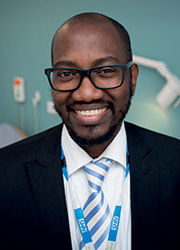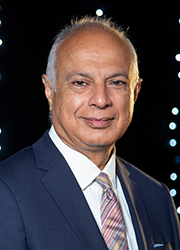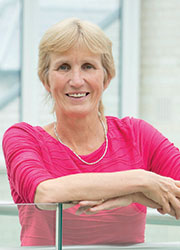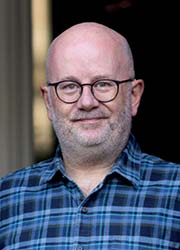
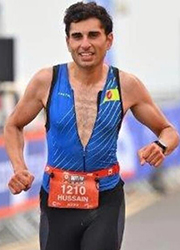
GP Lives: Run Hussain Run
Dr Frances Cranfield describes her journey from GP to becoming an Assistant Coroner in 1999, as ‘a path with an unknown destination'.
"I certainly didn’t start with the belief that I wanted a medical-legal career, it was a case of seizing an opportunity that arose at the time," she says.
Frances was introduced to the legal side of medicine during her vocational training – part of which was completed at Scotland Yard as her trainer was a coroner – and then at the practice she joined directly after qualification.
“All the partners there were police surgeons and so I was expected to do police surgeon work. I was mentored by some of the giants of the forensic world,” she explains.
“I did quite a lot of work around sexual assault victims and police work at that time. And actually, it was a really exciting time to be doing that kind of work because there was no structure and systems like we have now.” Frances was a founding member of the Faculty of Forensic and Legal Medicine, and the Expert Witness Institute, among many other professional bodies.
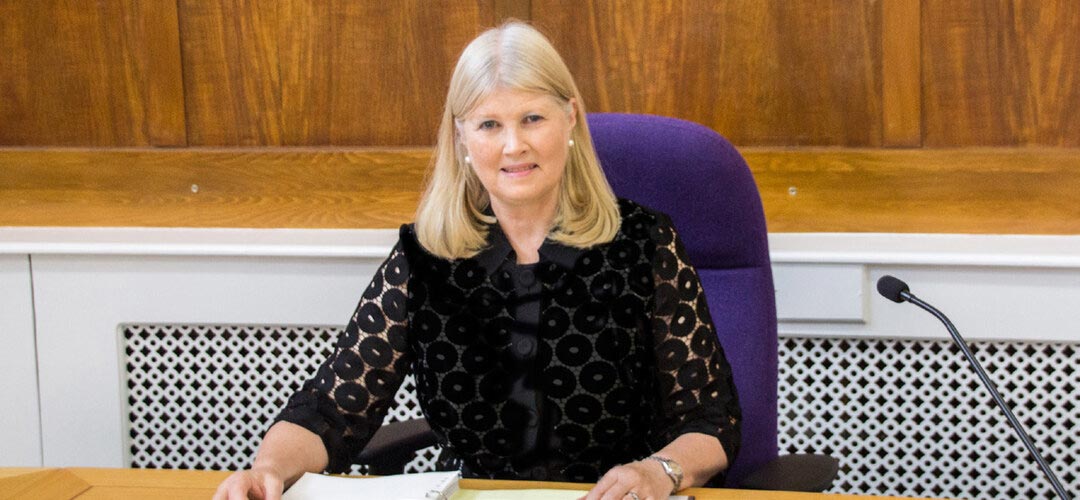
The role of coroner is an independent judicial officer, appointed by the Crown. “You investigate deaths where there has been any suspicion of a violent or unnatural death, the cause of death is unknown, or the person has died in custody,” she says.
“You have to do all the enquiries necessary for that. Sometimes you have to order post-mortems, most of the time you are requesting statements and medical notes. Some of the time you are holding inquests, and that is a formal court procedure.”
Nowadays, Frances says she wouldn’t be able to become a coroner. Since 2009, a change in the law means you need to have been a barrister or solicitor for at least five years. “But there is a new option, open to GPs, and that’s the new medical examiner system, which is open to all doctors,” Frances says.
The ability to help bereaved families ‘find the answers and knowledge they need to have the best closure possible’, and for society to learn lessons from people’s deaths and change for the better are both drivers for Frances’ work.
Death is one certainty in life but it is a Cinderella subject.
There is a wider point about death. “I see huge distress often where people haven’t got wills. Death is one certainty in life but it is a Cinderella subject…people feel unable to discuss it or prepare for it. It’s part of life’s cycle and I would like to see people acknowledge that more,” she says.
On the other end of the spectrum, Frances describes the role of a coroner as being ‘bathed in grief’, so the ability to step away is essential. “You listen sadly to tragic accounts... people are trying to come to terms with sometimes horrific things so it is absolutely vital that you can go home to a safe environment and a supportive family. Hobbies, Saturday night escapes to the cinema and travel have been a vital part of that for me.
“To a large extent that is true of general practice as well,” Frances, who practises in Welwyn Garden City, muses, “we deal with life-changing events with people, but we have known some of them for three generations. I have looked after three generations of families and you know some of them really well and you have to be able to step away from their problems and grief as well.”
As well as balancing her two careers, Frances is heavily involved in College life, having joined her Beds and Herts Faculty Board soon after completing her GP training. She’s now the Faculty’s rep on UK Council, and has held a number of local and national roles within the College.
She speaks about her involvement fondly: “It’s provided me with knowledge, friendship, opportunities, and I would say I have tried to do my best to give back to colleagues and the profession over the years. I think it has to be a two way process.”
Her advice for other GPs considering a portfolio career is to "look at the possibilities and explore the opportunities available with an open mind. Some won’t be right for you and that is okay… but don’t look back with regrets for not giving something a go. Have the courage to step outside your comfort zone because that can help you grow."
Next for herself: “My ambition is to continue to be part of the process of embedding medical examiners into the system, where I hope we can be learning from death in a supportive and no blame culture.
“Life is to be lived to the full – that’s the way I look at it.”
Read more
Thank you for your feedback. Your response will help improve this page.
